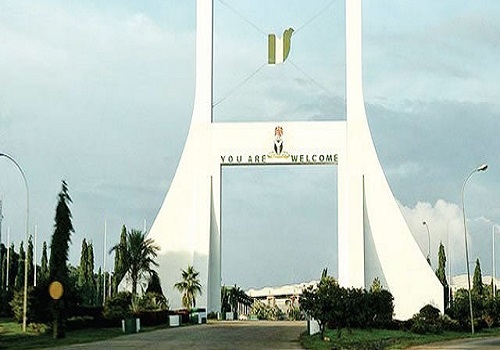Not one, not two, or three cases of hoodlums or robbery attacks have occurred in dark areas, particularly major bridges in the nation’s capital, prompting residents to file significant complaints. Abuja, the rapidly growing Federal Capital Territory (FCT), is undeniably obvious to everybody.
Some are for pedestrian crossings on highways, while others are for automobile overpasses. Many are now in use, while others are under construction. Along the busy six-lane Apo-Maitama expressway, such pedestrian bridges are being built at Area One and Zone Seven crossings to connect homes in Wuye District. The one on the Abuja-Kubuwa-Kaduna Express Way is also in operation.
Gwarimpa junction is littered with bridges connecting people of Dawaki Area in Buari Area Council. Pedestrian-bridge one is also found a little after Gwarimpa to connect people residing at Dutse Alhaji, Kubuwa town and Federal Capital Development Authority Estate (FCDA). There is another in Abuja main town connecting Zones Three and Four just before the popular Police Station Wuse Market.
Findings have revealed that most of the bridges have turned dead zones at night. Several attacks have been recorded around some of these bridges due to either poor street light or busy areas. The recent attack occurred when Mr. Ojo Olorufemi, a civil servant, was robbed by some hoodlums at the popular Apo Bridge at about 9:pm. Mr. Olorunfemi, who narrated his ordeal to Abuja Review after he was discharged from the hospital, thanked God for saving his life.
His words: “Abuja is dark and it has become very dangerous to move around, particularly at night. I just pulled by the road to urinate around 11pm at the popular Apo bridge. I was coming from the legislative quarters where I wanted to see someone. So from nowhere some hoodlums came behind me and attacked me. I did not see them as they were approaching me.
“When I got to the hospital that night, I was told that there was no week that such an incident wouldn’t happen. People, the nurses said, are usually rushed in with different cuts on their body. The police officers at the Gariki police station where I reported the incident are also aware of the sad development and they confirmed it. They said it is always a recurring decimal.
“The prosecutor at the station also told me that when they take those boys to court, they will go and free them and the hoodlums will find their way back to the streets. That fateful day, I was in the company of two other men including my little child in the car. I thank God that I was not injured too badly. So I drove myself to the hospital. I am still receiving treatment at home.
“My advice to people is that they should be wary of the bridges because from the look of things all of them are not safe. They should avoid the bridges at night. They made away with my phones, laptop and other valuables.”
Investigation by Abuja Review also showed that some girls had been raped in that area when they appeared unwilling to let go off their valuables. But almost, always, the targets of the hoodlums are mobile phones and wrist watches. One could imagine that Abuja, being the seat of power, is well policed to prevent crimes, but that is not the case as at present. The city, like many other cities in the country, has its black places. Do not drive to some places in the FCT with your car window glass wound down even if the car is not air conditioned. The places include the junction linking NNPC Towers in the Central Area, National Mosque and Zone Four. There is a traffic light at the junction, which makes the place dangerous. Investigation showed that many women motorists have lost their handbags and other valuables to common thieves and hoodlums who predate the place.

Many policemen out on night duty, many residents alleged, disappear from their duty posts any time after 10pm, thus making it easy for hoodlums to operate. Indeed, the policemen come out later, but they hardly meet emergency situations. If Abuja can be prone to insecurity on the bridges, especially at night, what then happens to other cities in the country? It is compelling to build bridges with electricity components, such that the street lights would be on throughout the night to curb the activities of the hoodlums.
A resident who spoke to Abuja Review, Abdul Musa, said he has been robbed twice on top the dark pedestrian bridge close to Area 3 junction, adding that: “On that fateful evening when I closed from work, I rushed to area 3 to board a bus to Nyanya, but due to the volume of cars that ply that expressway, I decided to use the pedestrian bridge. But as I climbed the bridge at that dark hour, I saw some young men positioned on top of the bridge. They beckoned me to come close and cooperate with them.
“When I got there, they quietly cornered me on one side and dispossessed me of my hand bag containing my phone, N40, 000, debit cards, identity card and my international passport. It looks like a drama to me, until a few minutes later when it was done to me that the whole game was real.”
However, the investigation by Abuja Review revealed that the cases mentioned above are just a few out of the many cases being recorded everyday across the Abuja metropolis and other satellite towns. Investigation also revealed that personal belongings of residents worth millions of naira are lost on a daily basis on account of the actions of these people.
Worried by the level of losses, the victims requested that the police and other security officials be positioned at these dark pedestrian bridges at night to guarantee the security of the pedestrians. They also advise that hawkers who occasionally occupy the bridge be sent packing.
FCT Commissioner of Police, Babaji Sunday, in a telephone conversation with Abuja Review, said the police are always on the trail of the hoodlums and have not been resting on their oars in bringing them to justice on a daily basis when they are being caught. The CP said the police are always on patrol even without information from anybody adding that it is not true that they let the hoodlum go after interrogation or otherwise. He advised car owners to be curious while on the road and always wind and lock their vehicles either in or out of the car.
Meanwhile, the Federal Capital Territory Administration (FCTA) said it has begun the rehabilitation of 33 traffic light intersections out of the 172 in the city. Inspecting the project, the Permanent Secretary, Mr. Adesola Olusade, said the first intersections were selected according to the priority of usage. He said the initiative was to pave way for smooth driving, and also address the continued challenges of gridlock in the Federal Capital City. The Permanent Secretary explained that the current upgrade, which came with security features, will connect all the traffic signals to a central point where activities at the intersections will be monitored to bring about sanity on the roads.
According to him, the rehabilitation work was part of the approved FCT 2021 budget, with additional ones awaiting the approval of the Bureau of Public Enterprise. Olusade revealed that the administration had another China intervention support that would commence installation by June/July, which will strengthen the traffic lights system. This, according to him, will ultimately translate to tangible improvement in the installation, rehabilitation and maintenance of the lights across the territory.
“For some time now, there have been issues with traffic signals in the Federal Capital City but with the award of this contract all the challenges associated with the traffic lights will be addressed.” Olusade started the inspection of the traffic lights project at Zakari Maimalara by Muhammadu Buhari way in the Central Business District, and ended at Kashim Ibrahim way/Anguiyi Ironsi street in Maitama District. On its sustainability, the Mandate Secretary FCT Transportation Secretariat, Zakari Dobi, said adequate measures will be put in place by the secretariat to safeguard the millions naira worth traffic lights infrastructure scheme. “The project is going to be for one year, but with the 2022 budget it can be extended to 3 years considering its importance,” Dobi said.
However, the contractor Engr Adewale Ikatun, explained that the project, which is rehabilitation and reactivation of some intersections, started in the last two weeks and will last for three months in the first phase.
The Nation





